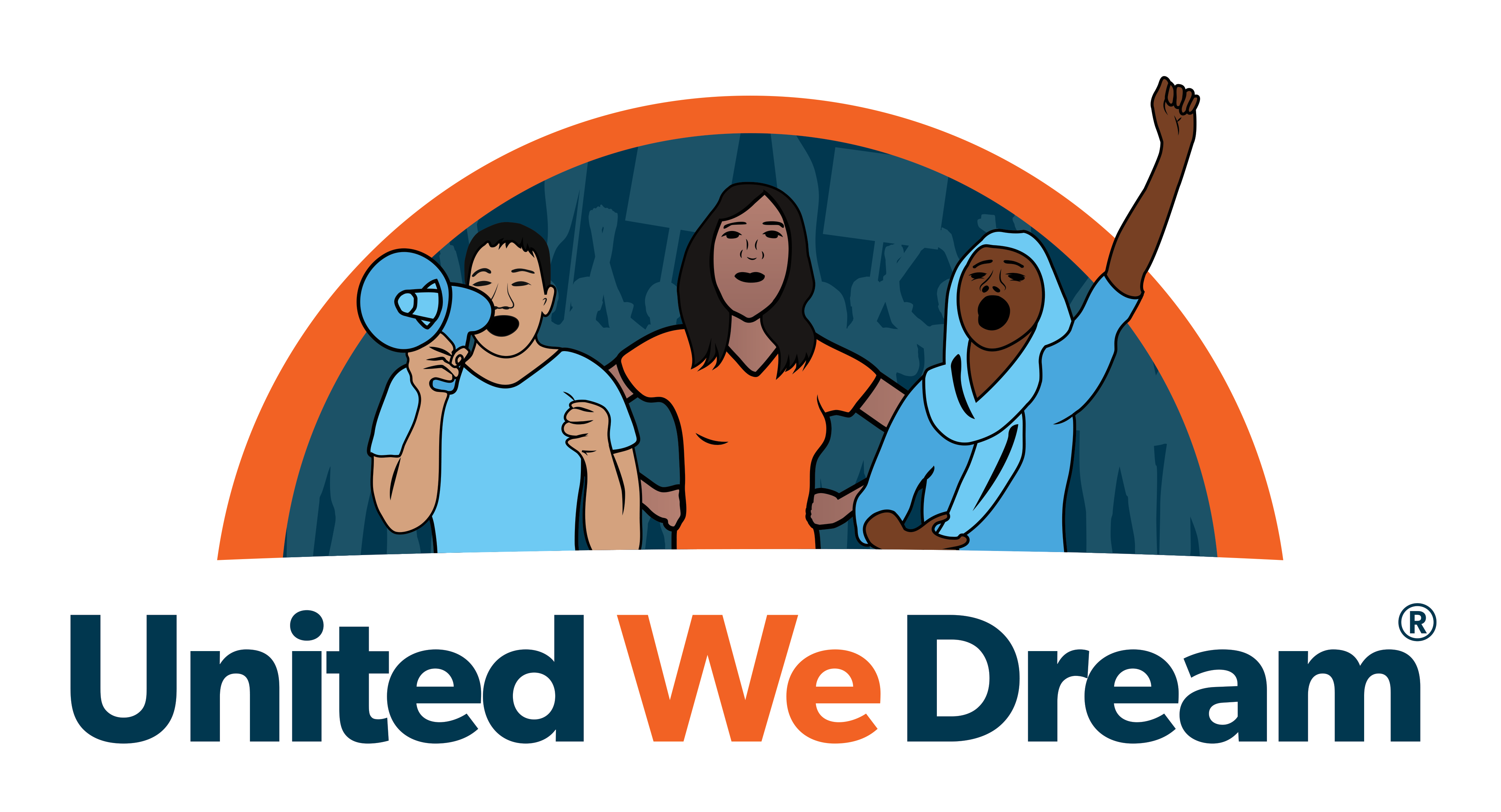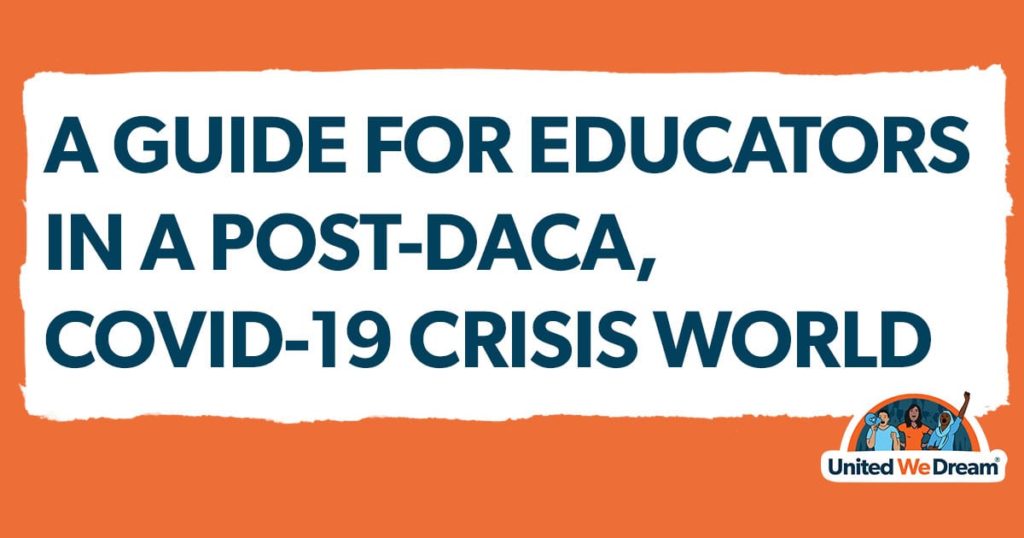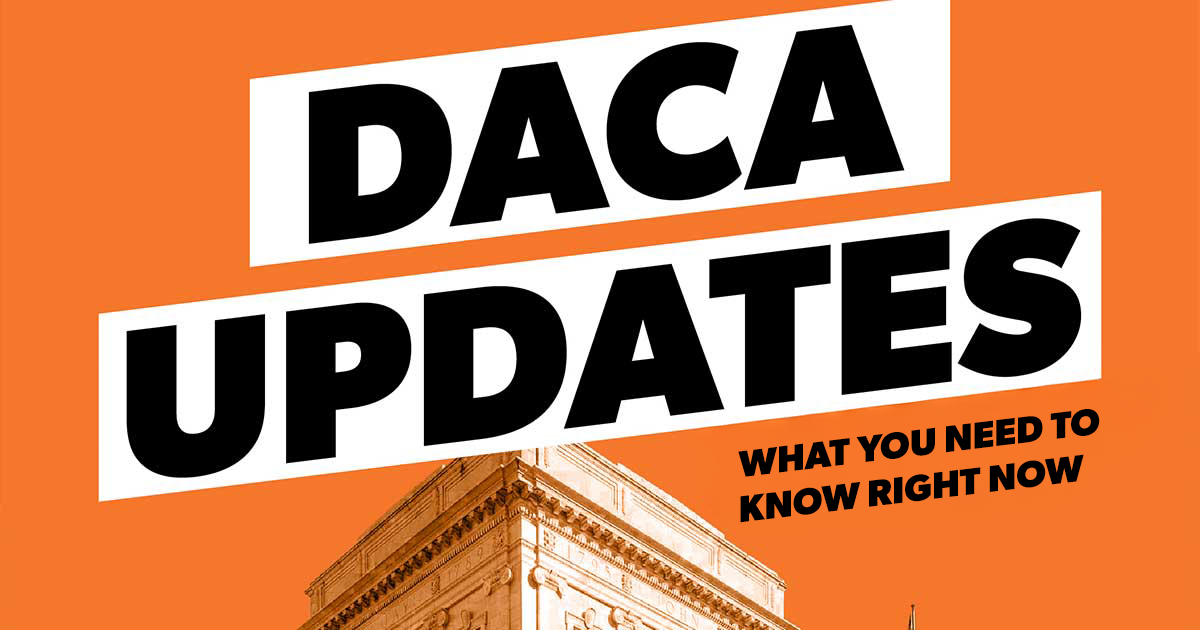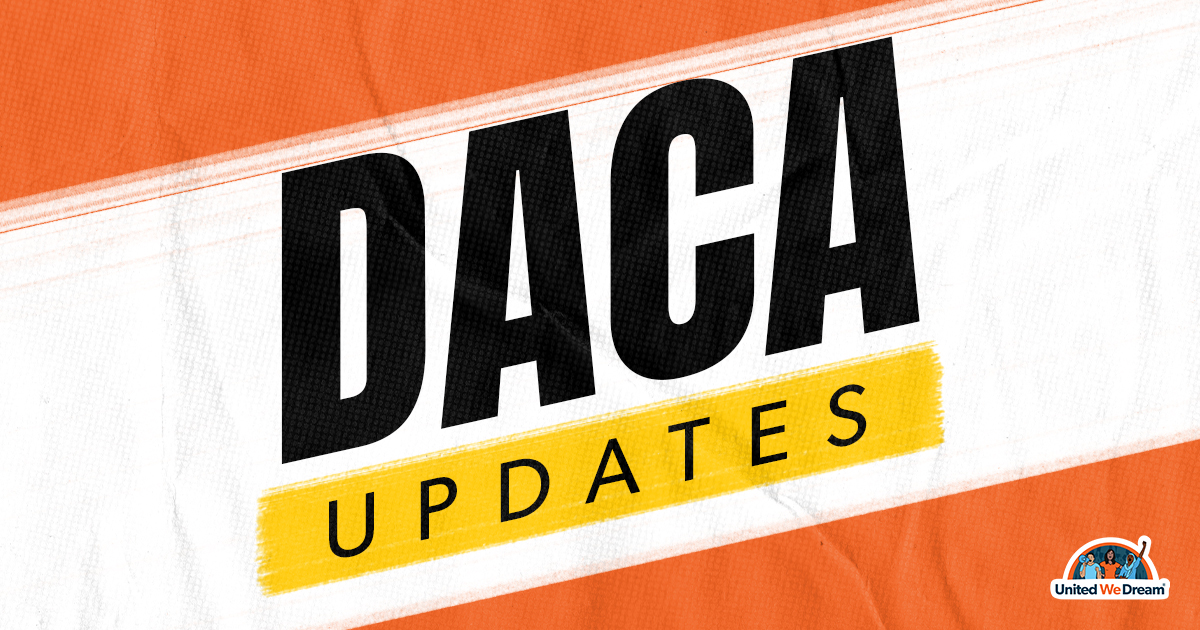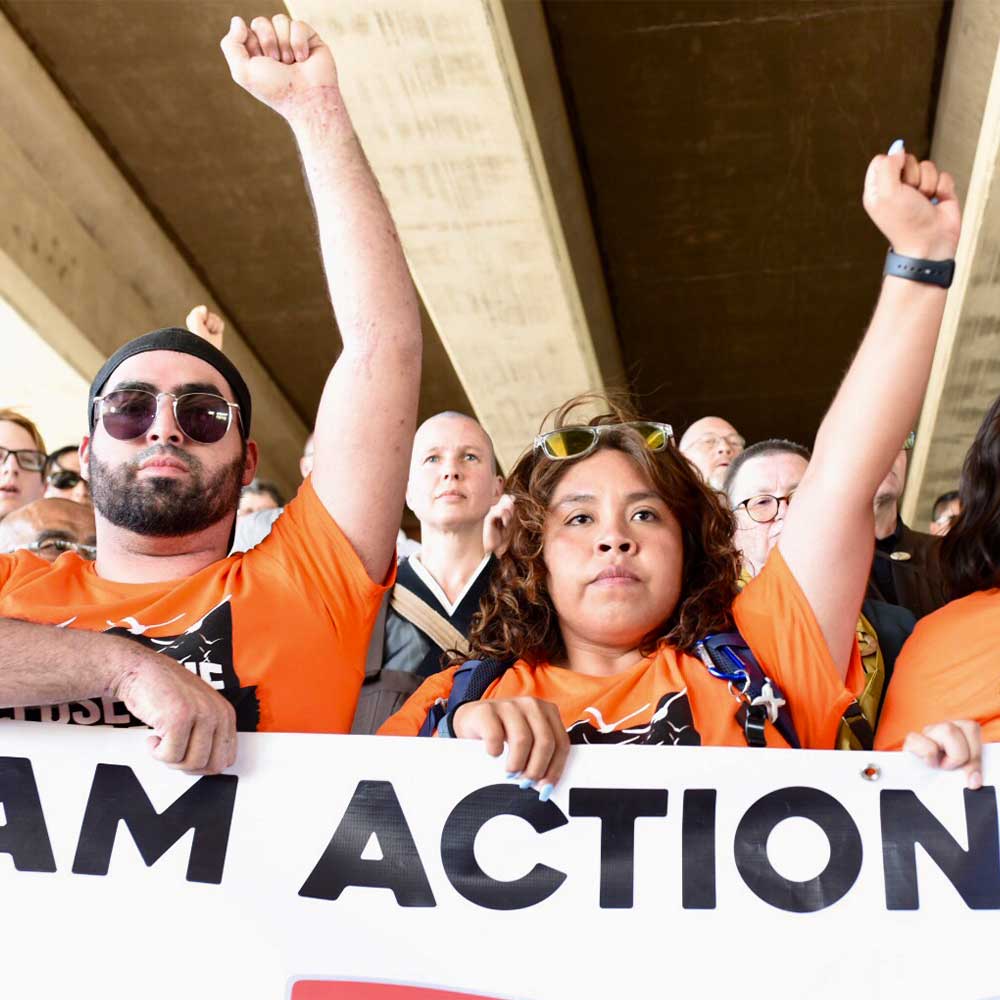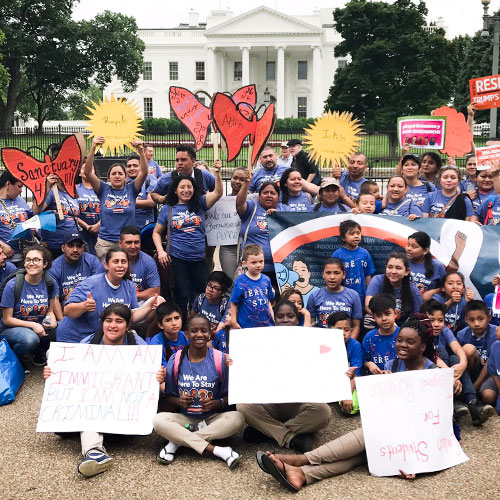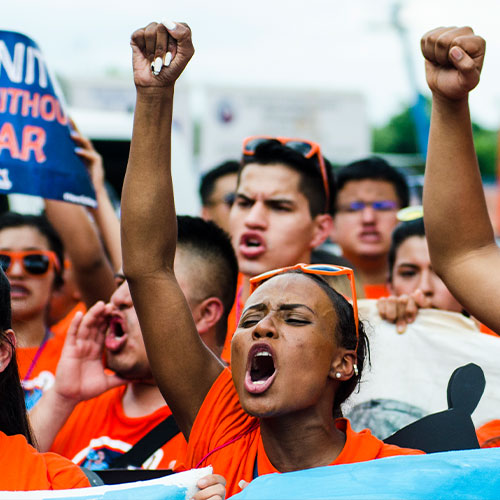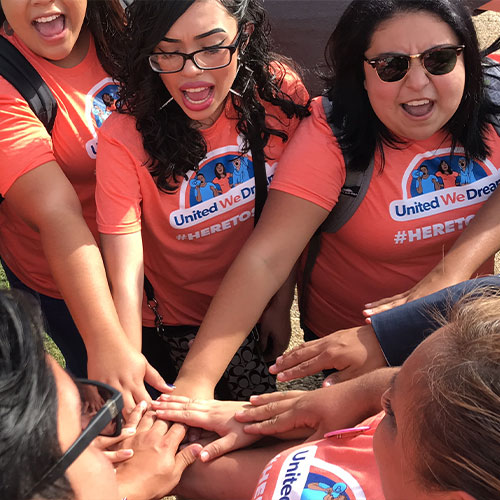We were here before DACA, we will be here after. We will continue to fight to protect our people from deportation and push for a future where every person, regardless of immigration status, can live and thrive without fear.
Unfortunately the Trump Administration and the Supreme Court do not think DACA recipients deserve protection from deportation any longer. It is now up to us and our communities to support each other.
While educators must continue to embrace the resilience of our undocumented students, they must also be prepared to address the detrimental impact that the Supreme Court’s ruling on DACA will have in our entire school community. And as millions of students and educators across the country face an uncertain and changing reality during a global health crisis, now more than ever, we need our teachers more than ever.
Educators like faculty, teachers, school counselors, administrators and school staff are often the first line of support for approximately 9,000 DACAmented teachers, the 3.9 million students who are part of mixed-status families in our k-12 schools, not to mention those in higher education and all of their families who are vulnerable to detention and deportation.
Now that COVID-19 is part of our realities and our schools have closed, this presents yet another challenge on how to provide that support and safe space undocumented and DACA recipient students have come to rely on from their educators.
Some added concerns undocumented and DACA-recipient students might have at this time:
- Many students and teachers are no longer physically in classrooms or on campuses. We must create virtual communities to ensure that no one feels they are alone.
- Many undocumented families are at home where ICE know their address. DACA recipients will worry about their families being detained along with them, and we must ensure they know their rights.
- Students might not be able to go home for various reasons and are stuck at the dorms.
- They or their parents have lost their jobs and have no income.
There are many different variables affecting the lives of DACAmented and undocumented students, this decision is only the latest. During this time we ask educators to:
- Commit to supporting DACAmented students, educators, and staff on our campuses and in our schools through actions including updating and changing institutional policies to expand access to admissions, tuition, and scholarships to individuals who may lose their DACA and broader undocumented youth. Ensure school and campus spaces are safe spaces for undocumented youth and do not present dangers posed by federal immigration enforcement. Check out some resources below!
- Advocate for permanent solutions for immigrant youth, their families, and undocumented people across the country that do not harm their communities. We are demanding policies that help people without hurting others, like HR 6, the Dream and Promise Act, and we do this because we believe that #HomeIsHere for immigrant youth, teachers, and families who are part of our schools.
- Share and amplify the stories of students, educators, and staff who have DACA. Their #HomeIsHere! See our stories to share below in our Resource Library.
- Direct students to this website, where they can find resources and information they will need to help them navigate the decision.
Some specific actions you can take right now is by implementing these best practices in your school community to show support for the undocumented community in response to the Supreme Court’s decision on DACA.
- Educate yourself on what this decision means to your students and their families.
- DACA ended. DACA recipients will lose their work authorization and their protection from deportation.
- ICE officials have declared that DACA recipients who lose their protections are subject to deportation enforcement.
- To be clear, once DACA recipients no longer have protection, they are considered undocumented immigrants.
- Re/Establish a safe space for undocumented students in your online classes/spaces.
- Come Out as Undocu-Ally in your Classroom
- Share with your students why we must stand together and for each other, especially in these uncertain times and in light of the DACA decision. Write a letter to your students and their parents.
- Develop/Re-establish Community Agreements with Your Students:
- Declare your online spaces as safe spaces.
- Have a discussion on how to love and protect each other within the classroom especially in these uncertain times and in light of the DACA decision.
- Provide a space of healing for the undocumented students
- Create virtual space for students to grieve this decision.
- Facilitate a time where students can share what is their biggest fear, what is their biggest hope, what is their commitment to each other
- Classroom activities and lesson plans for your classroom that show support and facilitate discussion.
- For tips on inclusive lesson plans and other information, check out our UWD #HereToStay Toolkit for Educators
- Come Out as Undocu-Ally in your Classroom
- Reach out individually to students you already know are undocumented, DACA recipients and/or in mixed-status families. Let them know you are still available to them in these uncertain times.
- Share information on what services are still available to them virtually such as counseling, resource centers, legal services resources and other services your campus might still be offering virtually.
- Share online resources to help them cope:
- COVID-19: https://twitter.com/UNITEDWEDREAM/status/1239630944501465096?s=20
- DACA Decision: https://dacadecision.com
Resource Library
Check out the below resources to help you support DACA students and community members now and after we hear back from the Supreme Court:
- Know Your Power, Know Your Rights
- Promoting Campus Safety and Educational Benefits
K-12
- NEA’s sample language for Safe Zones that school boards can pass to protect students from detention & deportation
- Informed Immigrant resources for educators supporting undocumented students and their families
Higher Education
- Presidents’ Alliance’s Campus Checklist to Prepare for a Supreme Court DACA Decision
- Presidents’ Alliance’s FAQs for Campuses on Immigration Enforcement and Site Visits
- Presidents’ Alliance’s Top 5 FAQs for Public and Private Colleges and Universities
